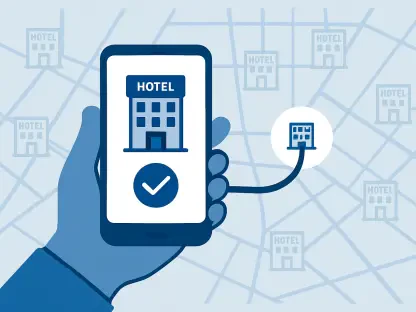As the world embraces technological advancements at an unprecedented pace, industries are transforming how they operate, and the events sector is no exception. The Global Event Tech Summit serves as a testament to this evolution, with its forthcoming 2025 edition centering around how tech reshapes operational efficiency and attendee engagement. Hosted at the East Sussex National, the summit draws senior-level professionals from varied sectors to deliberate on themes like “Simplify” and “Enhance.” Attendees and presenters aim to explore the practical applications of technology in making internal processes more efficient while creating more personalized and engaging experiences. These changes not only promise to redefine event landscapes but also highlight the transformative potential of tech.
Utilizing Technology for Simplified Processes
Automation and Smart Integration
Automation is one of the pivotal components of the “Simplify” theme. By revolutionizing event management, technology enables the vast streamlining of processes, thereby ensuring resource optimization. From scheduling to attendee communication, automated systems minimize human error and amplify productivity. Artificial Intelligence (AI) integration stands out as a practical tool in managing these systems. AI algorithms can swiftly analyze data and provide insights that were once cumbersome to gather manually. Such efficiencies allow event planners to allocate their resources and time toward crafting more engaging experiences for attendees. Moreover, the integration of technology into standard processes contributes to considerable cost reductions, allowing more focus on elements that enhance attendee satisfaction.
Operational Efficiency and Tech Stacks
An additional emphasis on streamlining tech stacks underscores the effort to maximize efficiency. With innovations constantly surfacing, selecting and implementing an effective combination of software and hardware is crucial. The chosen tech stack should ideally provide seamless data flow while ensuring compatibility across platforms. As a result, planners can enjoy real-time data insights, facilitating instant decision-making and responses to dynamic circumstances. Additionally, efficient tech stack management reduces the dependency on multiple system vendors, thus enhancing overall operational control. This strategy not only highlights a commitment to boosting functionality but also significantly enhances the team’s ability to swiftly pivot and adapt to unforeseen changes and challenges.
Enriching Attendee Experiences
Personalization and Immersive Content
The “Enhance” theme addresses the necessity for enriching attendee experiences, primarily through personalization and immersive technologies. By leveraging data analytics, event organizers can tailor content to match attendees’ preferences, making interactions more meaningful. Personalized content can range from customized agendas to reminders resonant with attendees’ interests. Additionally, immersive technologies such as augmented reality (AR) and virtual reality (VR) create interactive experiences that can captivate and engage audiences in previously unimaginable ways. These technologies enable events to transcend traditional barriers, drawing participants into a more compelling and dynamic environment. As immersive technologies mature, they promise to redefine interaction standards and elevate the attendee experience to unparalleled levels.
Inclusivity, Accessibility, and Wellbeing
In modern event design, inclusion and accessibility take center stage. Technology plays a fundamental role in ensuring these criteria are met comprehensively. From providing assistive devices to implementing user-friendly interfaces, every aspect of event planning is infused with sensitivity toward diverse attendance needs. Furthermore, considering attendee wellbeing has become vital, with an emphasis on creating environments that promote mental and physical health. Technologies such as stress-reduction apps or ergonomically designed virtual spaces contribute significantly to this objective. Additionally, events designed with accessibility in mind offer translation services, closed captioning, and other assistive features to ensure no participant is left out. By embedding such enhancements, event planners can foster an inclusive atmosphere celebrating diversity and equality.
The Next Steps for the Event Industry
Streamlining tech stacks is increasingly important for maximizing operational efficiency. In an era where technological innovations emerge rapidly, it is crucial to carefully select and implement a harmonious blend of software and hardware components. The ideal tech stack ensures seamless data flow and maintains compatibility across various platforms, which empowers planners with real-time data insights. This capability facilitates immediate decision-making and swift response to evolving situations. Moreover, effective tech stack management minimizes reliance on multiple system vendors, enhancing overall control over operations. This strategy showcases a commitment to enhancing functionality and adaptability, enabling teams to quickly adjust to unexpected challenges or changes. By investing in a well-digitized tech stack, organizations are not merely optimizing their current processes but are also preparing for future advancements and uncertainties. It underscores a strategic approach to evolution, ensuring teams remain agile and ready to tackle whatever comes next.









